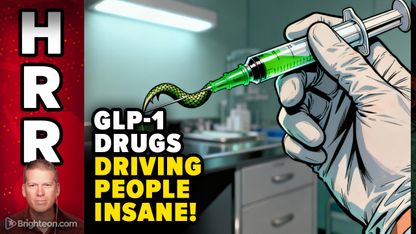
Thankfully, some natural alternatives have made a huge difference for many depression sufferers. If you thought that natural remedies could never work as well as prescription meds, the results people have been getting with these solutions may surprise you.
Curcumin
You’ve probably been hearing quite a lot about how miraculous curcumin, a compound in turmeric, is when it comes to problems like inflammation and dementia, but it’s also showing value in treating depression. One study showed that taking 500 milligrams of a bioavailable curcumin extract two times a day was an effective treatment for major depressive disorder; consuming it alongside healthy fats like coconut oil, olive oil or avocado enhances its absorption.
It is believed to work by inhibiting the depression enzyme known as monoamine oxidase while boosting depression-slashing neurotransmitters like dopamine and serotonin. Needless to say, curcumin does not put you at risk of the side effects seen with medication like Prozac, such as suicidal ideation, anxiety, and sleep problems.
A healthy diet
When you’re looking for a “fix” for a problem like depression, it’s easy to overlook bigger-picture solutions like diet, but by simply making healthy choices when it comes to food, you can see your depression diminish.
If you want to start with an easy change that will have a big impact, try upping your intake of foods that are high in polyphenols as these compounds improve your brain’s synaptic plasticity while reducing oxidative stress. Studies show they improve depression as well as psychiatric disorders, so look for foods like blueberries, dark chocolate, blackberries, hazelnuts, and flax seeds. You should also increase your intake of omega 3s by opting for foods such as nuts, oily fish, and flaxseed oil.
What you don’t eat can be just as important as what you do eat when it comes to fighting depression. Avoid foods that contain artificial ingredients, sugar, and other types of processed food to keep your mood even.
Exercise
If you’re not very active, this might not be what you want to hear, but exercise is a powerful depression fighter. As hard as it may be to find the motivation to work out when you’re depressed, you’ll likely notice an improvement pretty quickly once you get moving, and regular exercise can help keep depression at bay over the long term.
A review that was published in the Depression and Anxiety journal showed that aerobic exercise in particular has significant antidepressant effects in those who suffer from clinical depression. In fact, just three sessions of 45 minutes of moderate aerobic exercise per week is enough to relieve clinical depression. The findings were based on the results of 11 studies with more than 400 participants.
Saffron
Saffron has been shown in studies to help fight depression and anxiety. In a study published in the Journal of Complementary and Integrative Medicine, researchers found that depression and anxiety sufferers who took 50 milligram supplements of saffron twice per day over the course of 12 weeks noted improvements in measures from the standard Beck Depression Inventory and Beck Anxiety Inventory. Other studies have shown that it can be just as effective as antidepressant medications like Prozac but without the side effects.
When it comes to dealing with depression, you have a lot more options than your doctor may have led you to believe – although many of the best ones aren’t exactly profitable to the medical industry. Given all the toxic effects of prescription medications for depression, you owe it to yourself to give these alternatives a try and see if they can make a difference for you, too.
Sources for this article include:
Please contact us for more information.























